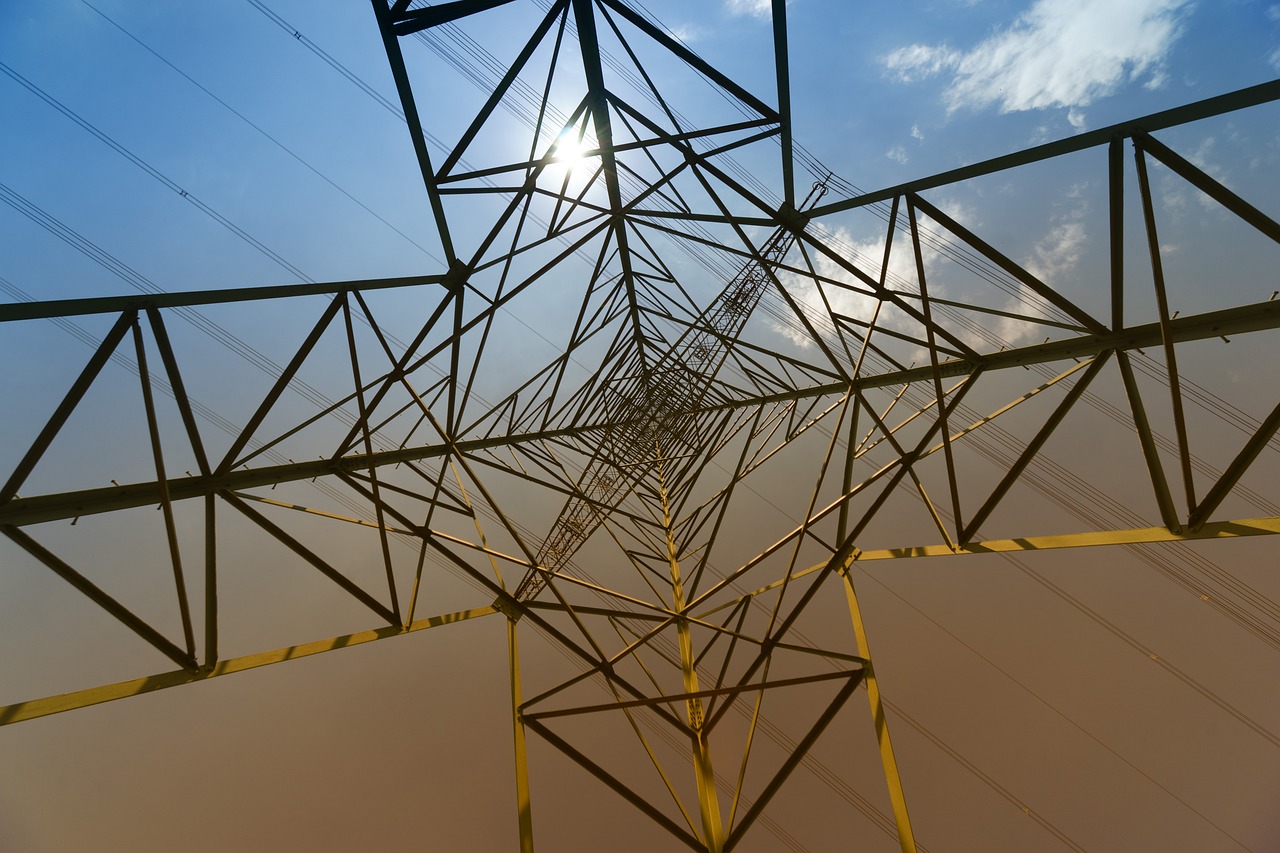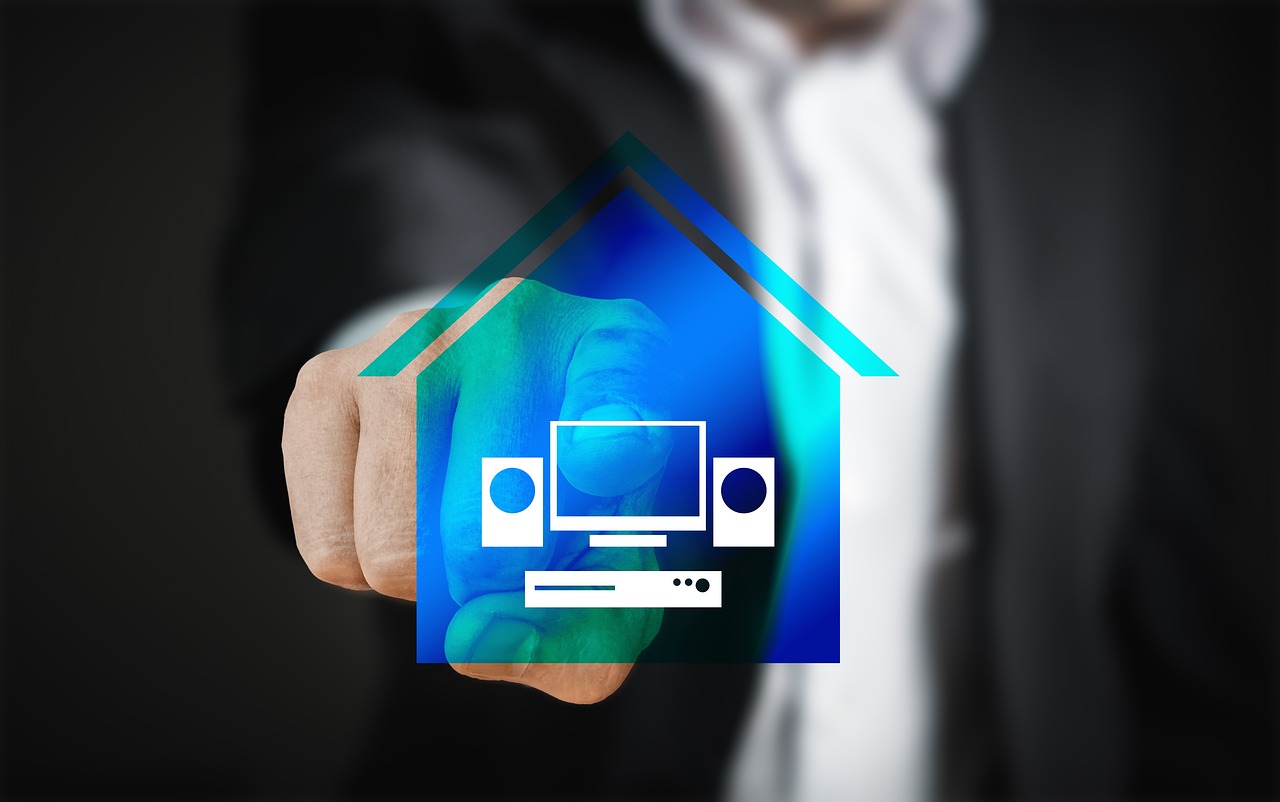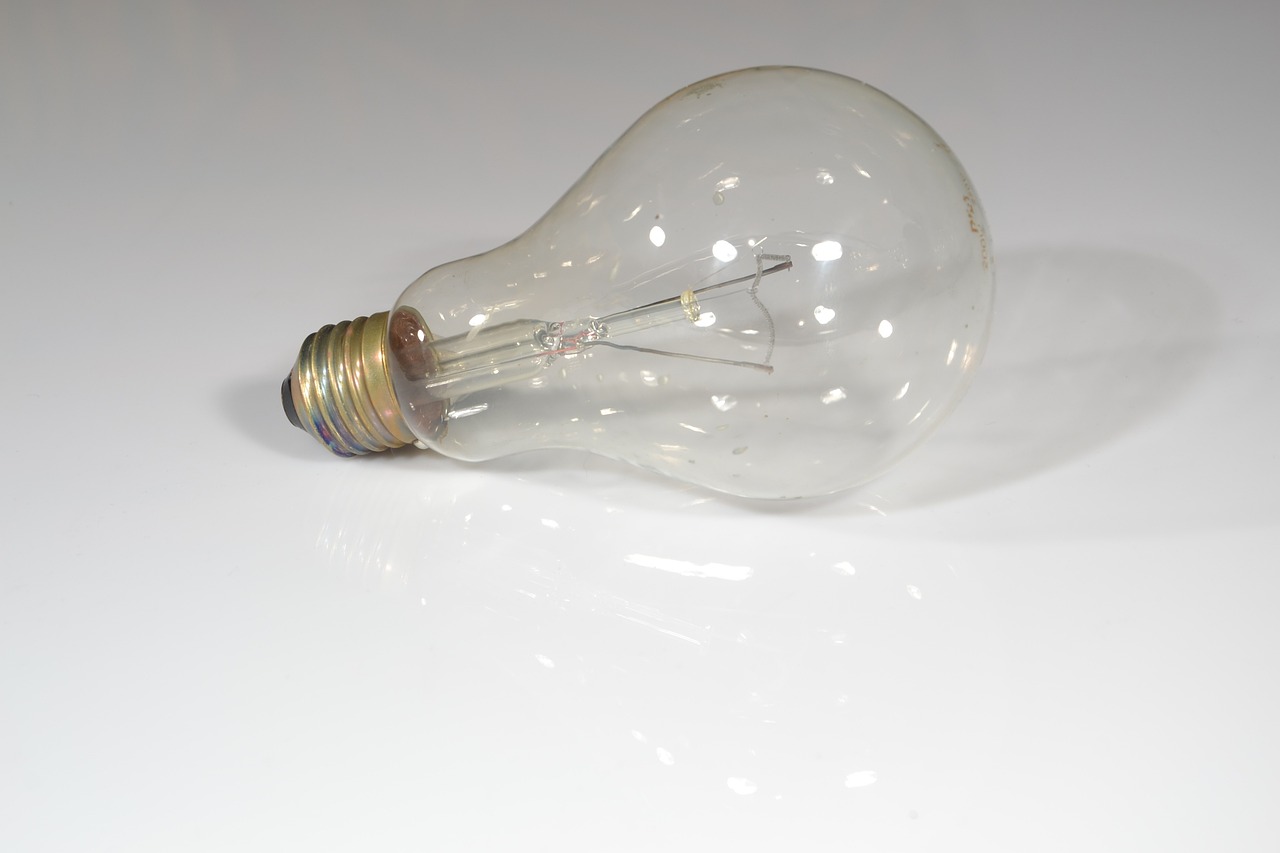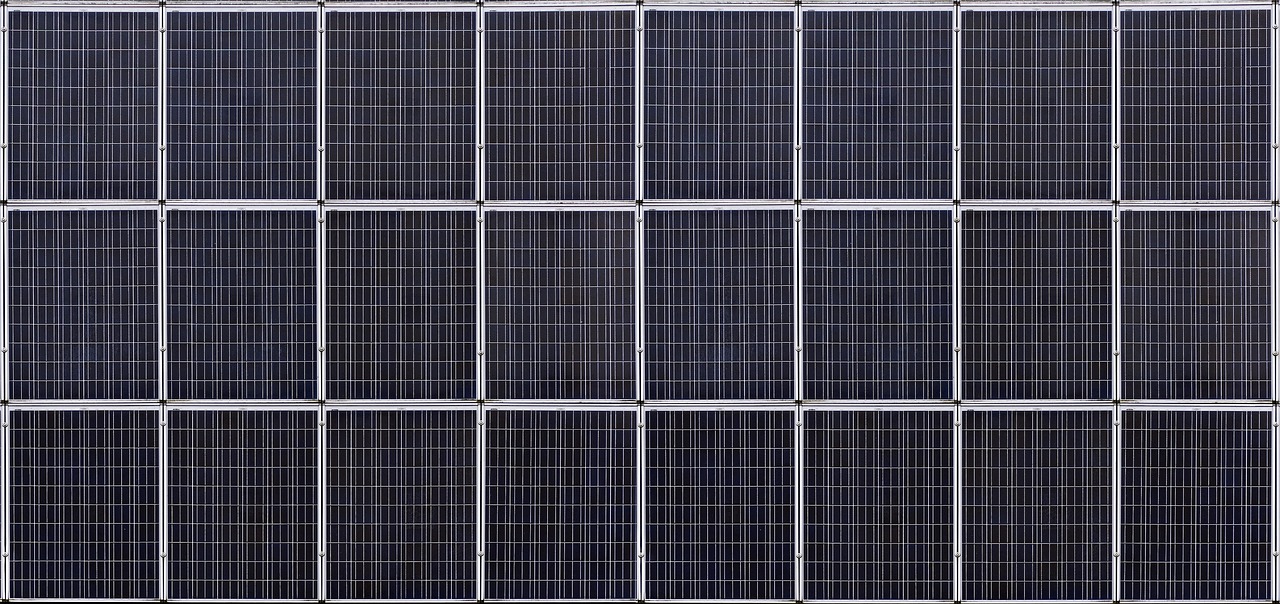10 Ways to Reduce Your Household's Energy Use
Reducing your household's energy use is not only beneficial for your wallet but also for the environment. By making simple changes and adopting energy-efficient practices, you can lower your electricity consumption and contribute to a more sustainable future. Let's explore ten effective ways to decrease your home's energy usage and make a positive impact.
One of the most impactful ways to reduce energy consumption in your home is by upgrading to energy-efficient appliances. Old appliances tend to consume more electricity, whereas newer models are designed to be more energy-efficient, helping you save money on your utility bills while reducing your overall energy usage.
Implementing smart thermostat controls is another effective strategy to optimize your home's heating and cooling systems. Smart thermostats can learn your schedule and adjust temperatures accordingly, ensuring that energy is not wasted when you're not at home.
Sealing air leaks and adding insulation to your home can significantly improve its energy efficiency. By preventing hot or cold air from escaping, you can reduce the need for constant heating and cooling, ultimately lowering your energy consumption.
Maximizing natural lighting and switching to LED bulbs are simple yet impactful ways to reduce your electricity usage. By relying more on natural light during the day and using energy-efficient LED bulbs, you can create a well-lit environment while saving energy.
Unplugging electronics and appliances when they are not in use is a habit that can prevent energy wastage. Many devices consume standby power even when turned off, so unplugging them can help reduce your household's overall energy consumption.
Energy-efficient windows play a crucial role in enhancing your home's insulation. By installing windows that are designed to reduce energy loss, you can decrease the workload on your heating and cooling systems, leading to lower energy usage.
Practicing energy-efficient cooking habits can also contribute to reducing your household's energy use. Simple actions like using lids on pots, matching pan sizes to burners, and utilizing microwave ovens can help you save energy in the kitchen.
Transitioning to renewable energy sources such as solar or wind power is a sustainable way to lower your carbon footprint. By generating your own clean energy, you can reduce your reliance on traditional energy grids and contribute to a greener future.
By incorporating these ten ways to reduce your household's energy use into your daily routine, you can make a significant difference in both your energy bills and the environment. Small changes can lead to big savings and a more sustainable lifestyle. Take the first step towards a more energy-efficient home today!

Upgrade to Energy-Efficient Appliances
When it comes to reducing your household's energy consumption, one of the most effective strategies is upgrading to energy-efficient appliances. By making the switch from old, energy-guzzling models to new, eco-friendly ones, you can significantly lower your electricity usage and decrease your overall energy footprint.
Energy-efficient appliances are designed to consume less power while still providing the same level of functionality. They are equipped with advanced technologies that optimize energy usage, such as sensors that adjust settings based on usage patterns or energy-saving modes that reduce power consumption when the appliance is not in active use.
One of the key benefits of upgrading to energy-efficient appliances is the long-term cost savings. While the initial investment may be higher than traditional models, the reduced energy bills over time can result in significant savings. Additionally, many energy-efficient appliances come with rebates or incentives that can further offset the upfront costs.
Another advantage of energy-efficient appliances is their environmental impact. By consuming less electricity, these appliances help reduce greenhouse gas emissions and promote sustainability. This means that by upgrading to energy-efficient models, you are not only saving money but also contributing to a greener future for the planet.
Moreover, energy-efficient appliances often come with additional features that enhance convenience and usability. From smart functionalities that allow remote monitoring and control to improved performance and durability, these appliances offer a range of benefits beyond energy savings.

Implement Smart Thermostat Controls
Discover practical tips and strategies to lower your home's energy consumption and save money while promoting environmental sustainability.
Smart thermostat controls offer a convenient and efficient way to manage your home's heating and cooling systems. By utilizing advanced technology, these devices can learn your schedule and preferences, automatically adjusting the temperature to optimize energy usage. This not only enhances comfort but also reduces energy waste, leading to cost savings on your utility bills. Imagine having a thermostat that adapts to your lifestyle, ensuring a cozy home environment while minimizing energy consumption.
Additionally, smart thermostats provide remote access through mobile apps, allowing you to monitor and adjust your home's temperature settings from anywhere. Whether you're at work, on vacation, or simply relaxing in another room, you have full control over your HVAC system, enabling you to make real-time adjustments for maximum efficiency. It's like having a personal energy manager at your fingertips, ensuring that your home operates at its most energy-efficient levels.
Furthermore, smart thermostats often come equipped with energy usage tracking features, providing valuable insights into your household's energy consumption patterns. By monitoring your usage data, you can identify opportunities for further energy savings and make informed decisions on optimizing your heating and cooling settings. It's a proactive approach to energy management, empowering you to take charge of your home's energy efficiency.
In summary, implementing smart thermostat controls is a smart investment in reducing your household's energy use. With their intelligent features, remote accessibility, and energy tracking capabilities, these devices offer a user-friendly solution to enhance comfort, save money, and contribute to a more sustainable future.

Seal Air Leaks and Insulate Your Home
When it comes to reducing your household's energy consumption, one crucial step is to seal air leaks and properly insulate your home. Air leaks can significantly impact your energy efficiency by allowing warm air to escape during the winter and cool air to seep out in the summer. By sealing these leaks, you can create a more airtight environment that helps maintain a consistent temperature inside your home.
Insulation plays a key role in retaining heat during the colder months and keeping your home cool in the summer. Proper insulation in your walls, attic, and floors can reduce the need for constant heating and cooling, ultimately lowering your energy usage and utility bills. Additionally, insulation helps create a barrier against external temperatures, making your home more comfortable year-round.
One effective way to identify air leaks is by conducting a simple home energy audit. This process involves inspecting areas such as windows, doors, electrical outlets, and vents for any gaps or cracks that could be letting air escape. Sealing these leaks with weatherstripping, caulking, or foam insulation can make a significant difference in your home's energy efficiency.
Moreover, upgrading your home's insulation can have long-term benefits, not only in reducing energy consumption but also in enhancing the overall comfort of your living space. Proper insulation can help maintain a consistent temperature throughout your home, eliminating cold drafts and hot spots that can be both uncomfortable and inefficient.
By taking the time to seal air leaks and improve your home's insulation, you can create a more energy-efficient environment that promotes sustainability and reduces your carbon footprint. These simple yet effective measures can lead to significant savings on your energy bills while also contributing to a greener future for our planet.

Use Natural Lighting and LED Bulbs
When it comes to reducing your household's energy consumption, utilizing natural lighting and switching to LED bulbs can have a significant impact. Natural lighting not only brightens up your space but also reduces the need for artificial lighting during the day. By strategically placing mirrors or reflective surfaces, you can maximize the amount of natural light entering your home, creating a more energy-efficient environment.
LED bulbs are another essential component in minimizing electricity usage. Compared to traditional incandescent bulbs, LED bulbs consume significantly less energy and have a longer lifespan. Not only do LED bulbs help reduce your electricity bill, but they also contribute to a more sustainable lighting solution for your home.

Unplug Electronics When Not in Use
When it comes to reducing your household's energy consumption, one often overlooked but highly effective strategy is to . Many electronic devices continue to draw power even when turned off, contributing to what is known as "phantom energy loss." By simply unplugging devices such as chargers, televisions, and computers when they are not in use, you can prevent this unnecessary energy consumption and reduce your overall electricity usage.
One way to make unplugging electronics more convenient is to use power strips. By plugging multiple devices into a single power strip, you can easily switch off power to all connected devices with the flip of a switch. This not only saves energy but also simplifies the process of powering down multiple devices at once, making it a more manageable task in your daily routine.
Additionally, consider implementing a routine of unplugging devices before leaving the house or going to bed. This proactive approach ensures that no energy is being wasted while you are away or asleep. It may take some time to form this habit, but the long-term energy savings and environmental benefits make it a worthwhile effort.
When deciding which devices to unplug, prioritize larger electronics that consume more power, such as televisions and gaming consoles. While unplugging smaller devices like phone chargers may have a minimal impact individually, the cumulative effect of unplugging all devices can add up to significant energy savings over time.
Remember, every watt of electricity saved contributes to a more sustainable future and helps reduce your household's carbon footprint. By taking simple actions like unplugging electronics when not in use, you can play a part in conserving energy and promoting environmental responsibility.

Opt for Energy-Efficient Windows
Discover practical tips and strategies to lower your home's energy consumption and save money while promoting environmental sustainability.
When looking to reduce your household's energy use, one effective step is to opt for energy-efficient windows. These windows are designed to enhance your home's insulation, preventing energy loss and reducing the workload on your heating and cooling systems. By investing in energy-efficient windows, you can not only improve the comfort of your home but also significantly lower your energy bills in the long run.
Energy-efficient windows typically feature multiple panes, gas fills, low-emissivity coatings, and insulated frames, all of which contribute to minimizing heat transfer. This means that during hot summers, your home stays cooler, and in cold winters, it stays warmer without relying heavily on heating or cooling systems. Additionally, these windows can help reduce outside noise, improve natural light penetration, and enhance the overall aesthetic appeal of your home.
By choosing energy-efficient windows, you are making a sustainable choice that benefits both your household budget and the environment. These windows not only increase the energy efficiency of your home but also contribute to reducing greenhouse gas emissions associated with excessive energy consumption. So, when considering home improvements, don't overlook the impact that upgrading to energy-efficient windows can have on your energy use and overall comfort.
- Q: How much can I save by switching to energy-efficient windows?
- Q: Are energy-efficient windows worth the initial investment?
- Q: Can energy-efficient windows help reduce condensation on windows?
A: The amount you can save by switching to energy-efficient windows varies depending on factors such as the size of your home, your current energy usage, and the climate in your area. However, on average, homeowners can expect to save anywhere from 10% to 30% on their energy bills after upgrading to energy-efficient windows.
A: Yes, energy-efficient windows are worth the initial investment as they provide long-term savings on energy bills, increase the value of your home, and contribute to a more comfortable living environment. Additionally, many utility companies offer rebates or incentives for installing energy-efficient windows, further offsetting the upfront costs.
A: Yes, energy-efficient windows are designed to minimize condensation by maintaining consistent indoor temperatures and reducing heat transfer. This helps prevent moisture buildup on the windows, improving visibility and prolonging the lifespan of the window frames.

Practice Energy-Efficient Cooking Habits
When it comes to reducing your household's energy use, one area that often gets overlooked is the kitchen. However, practicing energy-efficient cooking habits can make a significant impact on your overall energy consumption. By making simple changes to how you cook, you can not only save energy but also reduce your utility bills. Let's explore some practical tips to help you cook more efficiently and sustainably.
One effective way to practice energy-efficient cooking is by using lids on pots and pans while cooking. By covering your cookware, you can trap heat inside, allowing your food to cook faster and using less energy in the process. This simple habit can make a noticeable difference in your energy usage over time.
Another tip is to match the size of your pots and pans to the size of your burners. Using a small pot on a large burner can lead to energy wastage as heat escapes around the edges. By using appropriately sized cookware, you can ensure that all the heat is being used efficiently to cook your food.
Utilizing microwave ovens for cooking and reheating food is also a great way to save energy in the kitchen. Microwaves use significantly less energy compared to traditional ovens, making them a more efficient choice for quick cooking tasks. Additionally, microwaves produce less heat, helping to keep your kitchen cooler during hot weather.
When it comes to baking or roasting, consider using glass or ceramic pans. These materials retain heat well, allowing you to lower the oven temperature by 25 degrees Fahrenheit while maintaining the same cooking results. This small adjustment can lead to energy savings over time without compromising the quality of your dishes.
Lastly, practicing energy-efficient cooking habits also involves minimizing preheating time for your oven. Many recipes do not require preheating, so you can save energy by turning on the oven only when needed. When preheating is necessary, try to do it for the shortest amount of time possible to reduce energy consumption.

Switch to Renewable Energy Sources
Discover practical tips and strategies to lower your home's energy consumption and save money while promoting environmental sustainability.
When considering ways to reduce your household's energy use, one of the most impactful steps you can take is to switch to renewable energy sources. By transitioning to solar or wind power, you can significantly decrease your reliance on traditional energy grids and lower your carbon footprint. Renewable energy sources offer a sustainable and eco-friendly alternative to fossil fuels, providing clean energy that helps combat climate change.
Investing in renewable energy not only benefits the environment but can also lead to long-term cost savings. While the initial installation of solar panels or wind turbines may require an upfront investment, the potential for reduced energy bills over time can result in significant financial advantages. Additionally, many governments offer incentives and rebates to encourage the adoption of renewable energy, making the transition more accessible and affordable for homeowners.
By harnessing the power of renewable energy sources, you not only contribute to a greener future but also gain greater energy independence. Generating your electricity through solar panels or wind turbines allows you to take control of your energy production and reduce your reliance on external energy providers. This self-sufficiency provides a sense of empowerment and resilience, ensuring that your household remains powered even in the face of external disruptions or outages.
Furthermore, switching to renewable energy sources can have a positive impact on your community and the planet as a whole. By reducing your carbon emissions and supporting clean energy initiatives, you contribute to a global effort to combat climate change and create a more sustainable future for generations to come. Embracing renewable energy is not just a personal choice but a powerful statement of environmental stewardship and responsibility.
Q: Are energy-efficient appliances more expensive to purchase?
A: While energy-efficient appliances may have a higher upfront cost, the long-term savings on energy bills often outweigh the initial investment. Additionally, many energy-efficient models qualify for rebates and incentives that can help offset the purchase price.
Q: How can I determine the energy efficiency of my home?
A: You can conduct a home energy audit to assess your energy usage and identify areas for improvement. Professional auditors can evaluate your home's insulation, appliances, and heating/cooling systems to provide recommendations for increasing energy efficiency.
Q: Is it worth investing in renewable energy for a small household?
A: Yes, even small households can benefit from switching to renewable energy sources. The environmental impact of reducing carbon emissions and supporting clean energy is significant regardless of household size. Additionally, the potential cost savings and energy independence make renewable energy a valuable investment for any home.
Frequently Asked Questions
- How can energy-efficient appliances help reduce my household's energy use?
Energy-efficient appliances are designed to consume less electricity, which can significantly lower your overall energy usage. By replacing old appliances with newer models that have higher energy efficiency ratings, you can save money on your utility bills while also reducing your environmental impact.
- What are the benefits of using smart thermostat controls?
Smart thermostat controls can optimize your home's heating and cooling systems by adjusting temperatures based on your schedule. This can help you save energy by avoiding unnecessary heating or cooling when you're not at home, ultimately reducing your energy consumption and costs.
- How do energy-efficient windows contribute to reducing energy consumption?
Energy-efficient windows improve your home's insulation, reducing energy loss through windows. By decreasing the workload on your heating and cooling systems, these windows help maintain a consistent indoor temperature, leading to lower energy usage and increased comfort.
- Why is it important to unplug electronics when not in use?
Unplugging electronics and appliances when not in use helps prevent energy wastage known as "phantom energy consumption." This practice can significantly reduce your household's overall energy consumption and lower your electricity bills over time.
- How can renewable energy sources like solar power benefit my household?
Transitioning to renewable energy sources like solar power can reduce your reliance on traditional energy grids, leading to lower carbon emissions and a more sustainable energy future. By generating your own clean energy, you can also potentially save money on electricity costs in the long run.



















